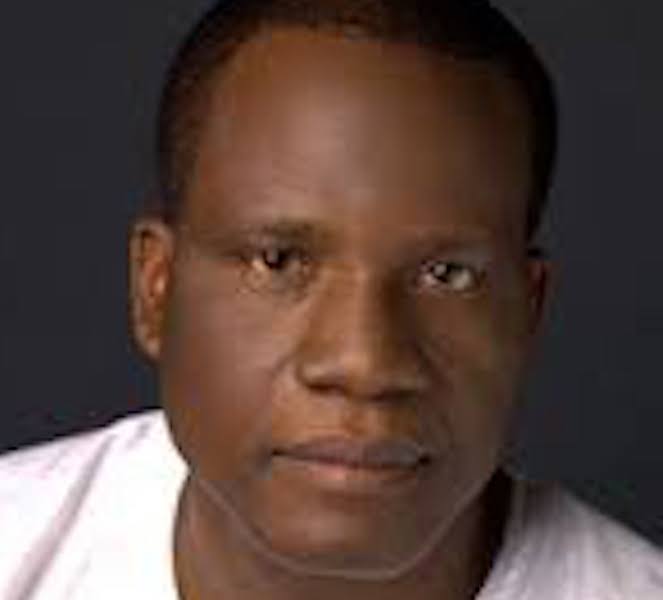Latest Headlines
A man called Vote as Metaphor for South Africa

Kayode Komolafe
It was Freedom Day again in South Africa on April 27, a few weeks to the general elections held last week.
This year, South Africans actually celebrated a milestone: 30 years ago the first post-apartheid election was held and the heroic symbol of struggle for multi-racial democracy in the country, Nelson Mandela, was elected president. A new constitution was also introduced on that day.
It also happened that on that day of the first election in 1994, a child was born in the household of Mr. Ernesto Ubisi and Mrs. Mariama Ubisi, both Mozambicans immigrants in a poor village called Lillyade in the Mpumalanga province of South Africa.
The family of Ubisi elected to name the new arrival Vote. At 30, Vote now works as a waiter in the South African tourist industry.
Mr. Vote Ubisi spoke in a television interview on the Freedom Day as the campaigns were in full swing for the last week election. Vote was excited that he would vote in the election. Remarkably, Vote was hopeful about the future of South Africa. On the one hand, Vote cherished the fact of being born into freedom. As he put it, he had no memory of the odious past of apartheid. On the hand he commented that 30 years after apartheid potable water was not still available in the village. That was Vote’s graphic way of making the point that the dream of an equitable society was yet to be fully realised. For joblessness, inequality, violent crimes and official corruption are still the defining features of the South African society.
To be fair to the country’s leadership in a statement to the nation on the Freedom Day, President Cyril Ramaphosa honestly put the problems mentioned in the foregoing into a sharp focus.
In many respects, Vote’s views were representative of the electoral mood in the country. It was a mixture of a deep sense disappointment in many constituencies and flickers of optimism in several others.
Little surprise then that this trend was amply reflected in the results of the elections announced at the weekend. The African National Congress (ANC), the party of Mandela, lost the electoral majority for the first time in 30 years. The party that was once clearly dominant will now be compelled to go into a coalition to govern. Although the ANC still has the highest percentage of the votes, it is now in its weakest position politically in three decades.
The party needs 50% of the votes to form a government alone. Unfortunately, it scored only 40.2% as against 21.8% of the Democratic Alliance (DA); 14.9% of the uMkhonto we Sizwe (MK) party and the 9.5% of the youthful Economic Freedom Front (EFF). Both MK and EFF are breakaway political forces from the ANC. The MK is a political platform hurriedly put together for former President Jacob Zuma to return to power while the EFF is more ideologically opposed to the socio-economic policies of the ANC government. The DA has been a long-standing opposition with a liberal agenda. It has its provenance in the old National Party of the apartheid era.
Critics of ANC had long predicted this electoral decline of the great organisation which transformed most admirably from a liberation movement into a robust political party.
The failure of the ANC to tackle poverty decisively despite the party’s past electoral fortunes is, perhaps, the major factor for the downward trend in its popularity. The issues of the elections were the surging crime rates, poor power supply, official corruption and widening inequality. All these problems have persisted despite South Africa being rated as the economy with the largest Gross Domestic Product (GDP) in Africa for years. For some time, South Africa was the toast of the World Bank and the International Monetary Fund. As its economic managers embraced neo-liberal reforms, South Africa became a model of how to get things right in economic terms. Now, the lesson is that the application of market forces alone cannot solve the problems of poverty and inequality. If anything, neo-liberal excesses can only deepen poverty. The allies of ANC in the days of th struggle for freedom – the South African Communist Party and the Congress of South African Trade Unions (COSATU) – warned against this trend, which came to a climax under Ramaphosa. Party leaders such as the late Winnie Mandela pointed to the huge numbers of black people still in poverty and the increasing alienation of the ANC from a segment of its base.
All told, the good news is that democracy has triumphed again in South Africa despite Zuma’s criticisms of the results. The people’s will has prevailed and the election was conclusive.
As the ANC ponders its coalition options, it may need to also look ahead to correct the errors that produced the electoral mood of which Mr. Vote Ubisi ‘s commentary was a metaphor.










